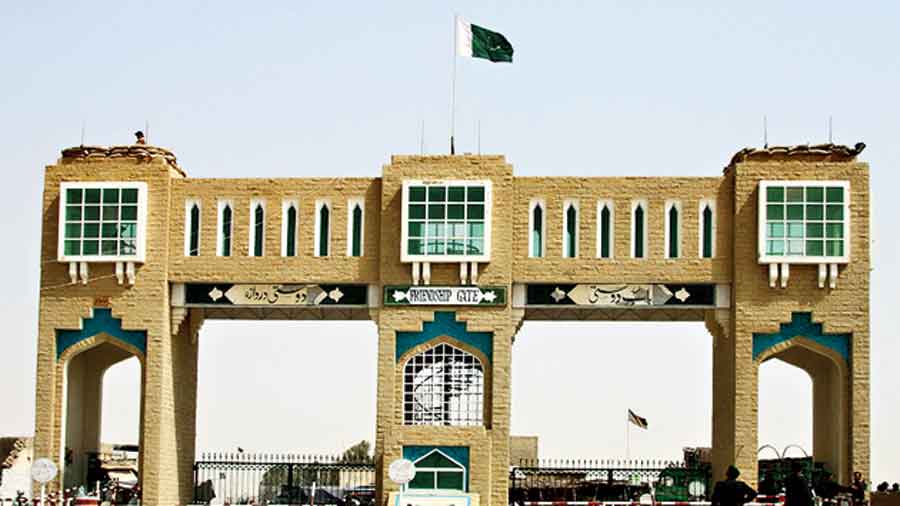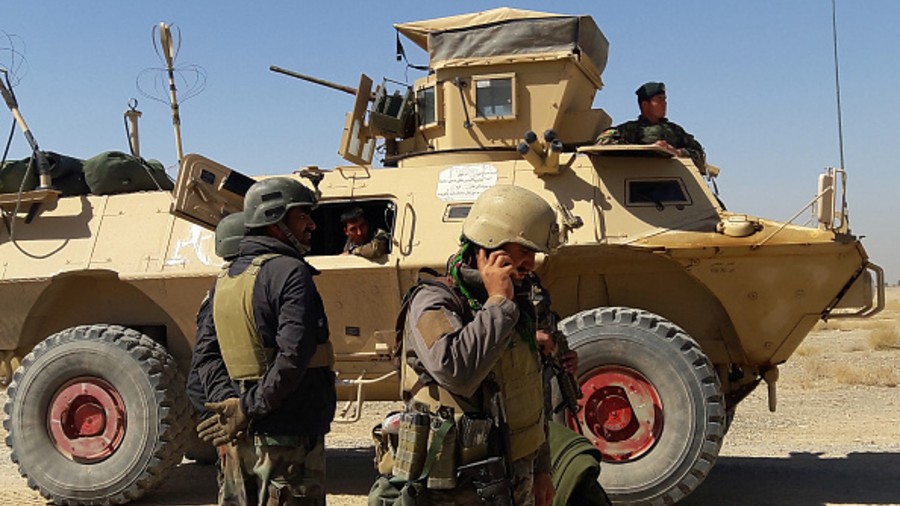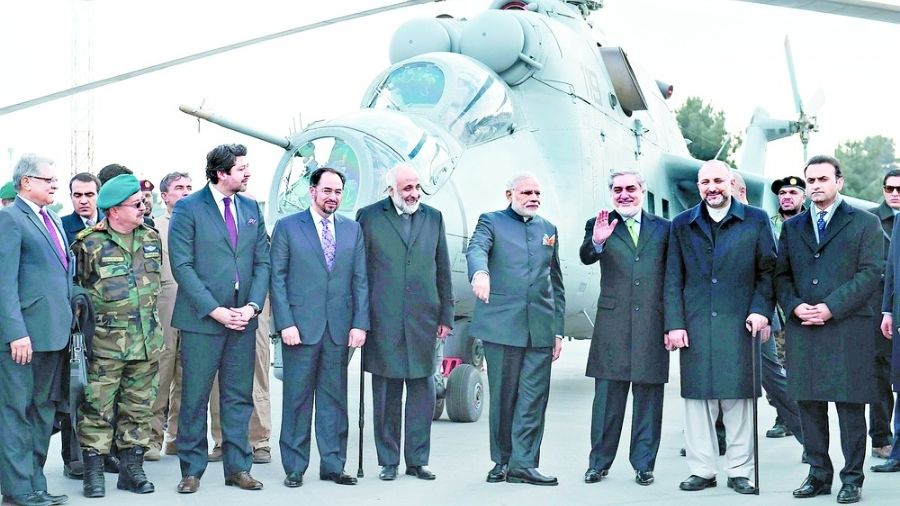Taliban fighters in Afghanistan said on Wednesday they had taken control of one of the main border crossings with Pakistan, perhaps the most strategic objective they have captured so far in a rapid advance across the country as US forces pull out.
A Pakistani official said fighters had taken down the Afghan government flag from atop the Friendship Gate at the border crossing between the Pakistani town of Chaman and the Afghan town of Wesh.
The crossing, south of Afghanistan’s main southern city Kandahar, is the landlocked country’s second busiest entry point and the main link between its vast southwest and Pakistani ports. Afghan government data show it is used by 900 trucks a day.
The takeover forced Pakistan to seal parts of its border with Afghanistan after heavy fighting between Taliban and Afghan forces around Wesh.
Afghan officials said government forces had pushed back the Taliban fighters and were in control of the Spin Boldak border district in Kandahar province. But civilians and Pakistani officials said the Taliban controlled the Wesh border posts.
“Wesh, which has great importance in Afghan trade with Pakistan and other countries, has been captured by the Taliban,” said a Pakistani security official deployed at the border area.
Officials in Chaman said the Taliban had suspended all travel through the gate.
“The mujahideen have captured an important border town called Wesh,” Taliban spokesperson Zabihullah Mujahid said in a statement.
The Taliban, fighting to expel foreign forces and defeat the US-backed government in Kabul since they were ousted in 2001, have in recent days seized other major border crossings, in Herat, Farah and Kunduz provinces in the north and west.
Control of border posts allows the Taliban to collect revenue, said Shafiqullah Attai, chairman of the Afghanistan chamber of commerce and Investment in Kabul.
“Income has started to go to the Taliban,” Attai told Reuters, though he could not say how much they were earning.
President Ashraf Ghani travelled to the northern province of Balkh on Tuesday to assess security after the Taliban pushed government forces out of several districts there.
Ghani, 72, met civilians and assured them that “the Taliban’s backbone will be broken” and government forces would soon retake all of the areas lost to the militants, the Tolo News network reported. Separately, Vice-President Amrullah Saleh said on Twitter that the Taliban were forcing members of a small ethnic minority to either convert to Islam or leave their homes in the northern province of Badakhshan.
“These are minority Kerghiz who lived there for centuries ... They are now in Tajikistan awaiting their fate,” he said.
A Taliban spokesman was not immediately available for comment but the UN mission in Afghanistan said it was increasingly concerned about reports of rights abuses as the fighting spreads.
“The reports of killing, ill-treatment, persecution and discrimination are widespread and disturbing, creating fear and insecurity,” the mission said in a statement.
Educated Afghans — especially women and girls who were barred from school and most work under the Taliban — have expressed alarm at their rapid advance, as have members of ethnic and sectarian minorities persecuted under their severe interpretation of Sunni Islam.
Taliban spokespersons reject accusations that they abuse rights, and say they will not mistreat women if they return to power.
“The best way to end harm to civilians is for peace talks to be re-invigorated in order for a negotiated settlement to be reached,” the UN mission said.
The Taliban made a commitment to negotiate with their Afghan rivals as part of an agreement under which the US offered to withdraw its forces. But little progress has been made towards a ceasefire in several rounds of talks in Qatar.
Senior politicians from Kabul were preparing to leave for Qatar for more talks this month as western diplomats urged the rival sides to work towards a power-sharing agreement.
Interpreters’ flights
The Biden administration is set to begin evacuations of Afghan interpreters and translators who aided the US military effort in the nearly 20-year war, an administration official said.
The Operation Allies Refuge flights out of Afghanistan during the last week of July will be available first for special immigrant visa applicants already in the process of applying for US residency, according to the senior administration official.
President Joe Biden has faced pressure from lawmakers to come up with a plan to help evacuate Afghan military helpers ahead of next month’s US military withdrawal.
The evacuation planning could affect thousands of Afghans who worked for the US — plus their family members — are already in the application pipeline for special immigrant visas.













